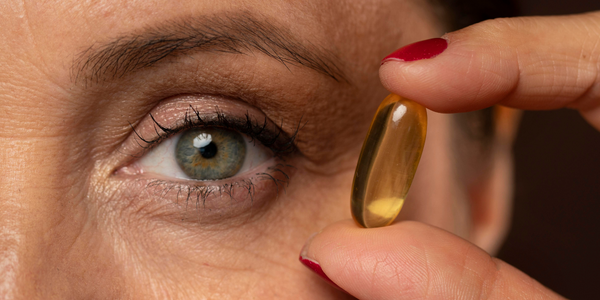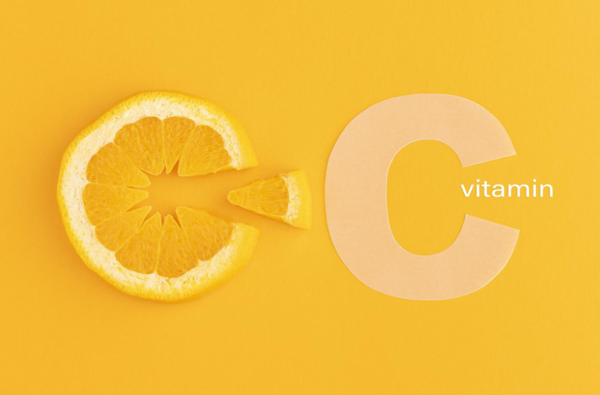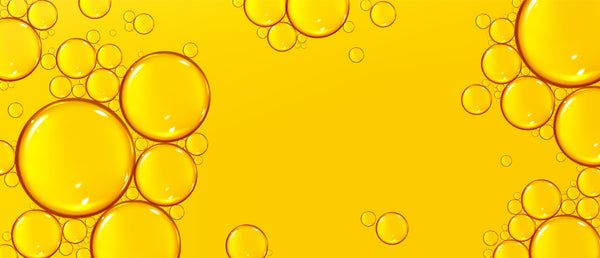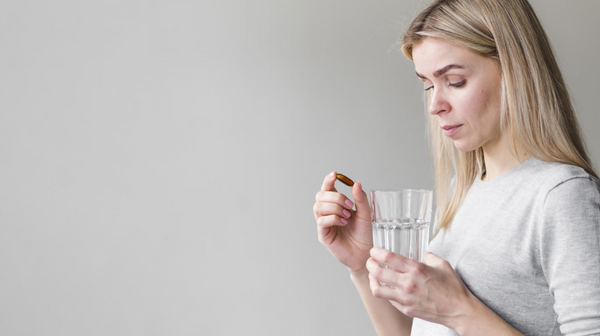Spirulina is a trending superfood and one must've definitely read about it on the ingredients list of your favorite smoothie or on social media, respectively. It is a rich source of protein, iron, potassium and other vital vitamins & minerals like vitamins E, C, and B6 essential for maintaining a healthy immune system & overall wellbeing. There is increasing interest in spirulina as a superfood due its highly nutritious nature and numerous health benefits.
This blog talks about what spirulina is and how it plays a role in your wellbeing. You'll also find different safe yet effective ways of including spirulina in your diet. So, read in full.
What is Spirulina?
Spirulina is a blue-green alga that usually grows in salt and fresh water in tropical regions such as Central America, Asia, Central Africa, etc. it's a rich source of protein, vitamins, minerals, and antioxidants, often referred to as a super food.
While spirulina can be eaten raw, it's most commonly available in the form of capsules, tablets, and powder. Here's what one tablespoon (about 7 grams) of dried spirulina powder contains:
-
20 Calories
-
4 Grams Protein
-
< 1 Gram Sugar
-
2 Grams Carbohydrate
-
< 1 Gram Fat
-
< 1 Gram Fiber
How Does Spirulina Play a Role in Your Wellbeing?
Spirulina, as stated earlier, comes with numerous nutrients. Because of these nutrients, it offers amazing benefits that help ensure your overall well being. Here are the benefits spirulina offers:
1. Spirulina Exhibits Antioxidant and Anti-Inflammatory Properties
Oxidative damage directly impacts your cells and DNA.
Fortunately, spirulina comes with numerous antioxidants, such as phycocyanin. This phycocyanin not only helps fight free radicals (oxidative damage) but also inhibits the production of inflammatory signaling molecules, thus exhibiting anti-inflammatory properties.
2. Spirulina Helps Improve Allergies Such as Allergic Rhinitis
Allergic rhinitis is a simple allergy that happens when your body is allergic and comes in contact with substances such as:
-
Dust Mites
-
Pollen
-
Mold
However, because of the anti-inflammatory properties of spirulina, it can help you deal with such allergies effectively. It's said to be more effective than some anti-allergy medications.
As per a 2020 study people suffering from allergic rhinitis who consumed spirulina reported better relief than the people who consumed cetirizine. That's how effective spirulina is.
3. Spirulina Helps Reduce Blood Pressure
Blood pressure could lead to several chronic complications such as heart attack or heart failure. However, spirulina is known to reduce blood pressure. A study revealed that consuming 4.5 grams of spirulina per day could help reduce blood pressure in individuals with normal level
One more study published in the journal Hypertension found that the molecules in spirulina, when injected in the body, stimulate a process that releases nitric oxide. This further triggers relaxation of the artery, which can help lower the blood pressure level by increasing the amount of blood pumped in one motion.
4. Spirulina May Help Deal with Iron Deficiency Anemia
Iron Deficiency Anemia (IDA) is caused due to low iron intake and leads to a low healthy RBC count. And this can lead to tiredness, fatigue, dizziness, etc. However, 100 grams of spirulina contains about 28.5 grams of iron. Therefore, by including spirulina in your diet, you can resolve the issue of IDA.
Also, spirulina contains polyphosphate bodies. These polyphosphate bodies are known to improve iron absorption in your body which is quite important if you want your body to effectively extract iron from your diet.
How to Include Spirulina in your Diet?
Spirulina is commonly available in the form of supplements that you can include in your diet. However, not every supplement is reliable. This is why we've handpicked some of the best and safest spirulina supplements from Wellbeing Nutrition:
Daily Greens
If you're looking for an easy way to get all the nutrients for your body, Daily Greens is for you. Along with spirulina, Daily Greens is a source of 38 farm-fresh veggies and fruits. This supplement can help:
-
Boost Immunity
-
Prevent Infections
-
Reduce Inflammation
-
Aids Detoxification
It's very convenient and fun to consume Daily Greens. Just drop a tab in a glass of 250 ml chilled water and watch it fizz. And within seconds, you can gulp it down.
Superfood Plant Protein
Superfood Plant Protein is by far the best source of plant-based protein. It comes with a plant protein isolate blend, digestive enzymes, antioxidant blend, berry blend, and superfood blend consisting of spirulina. This supplement can help:
-
Improve Digestion
-
Enhance Immunity
-
Maintain Ideal Weight
-
Build Lean Muscles
It comes in a powder form that you can add to any non-dairy beverage or plain water.
Slow Fertility
Slow fertility contains two supplements, one for men and the other for women. Spirulina is also considered an anti-inflammatory that can help reduce inflammation that causes blockage to the fallopian tube such as Salpingitis. Antioxidants in spirulina protect the body from free radical damage that contribute to fertility issues such as luteal phase defect, poor egg and sperm health, as well as lowered overall immunity and health.
Fertility for Him: This supplement is for men who wish to improve their fertility. It comes with several amazing ingredients, such as fast-absorbing vegan omega oil, spirulina extract, etc., that gradually nurture and support fertility.
Fertility for Her: This one's for women who wish to improve their chances of conceiving. It comes with fast-absorbing vegan omega oil, ashwagandha, and spirulina extract.
Hair, Skin & Nails
Hair, Skin & Nails is a scientifically crafted supplement to help repair your skin, nails, and hair. It comes with several amazing ingredients such as glutathione, evening primrose oil, spirulina extract, and more.
Spirulina is being widely used for promoting hair growth and to combat hair problems like thinning hair and baldness. Spirulina contains amino acids, essential fatty acids, vitamin A and beta-carotene, all of which are great for hair. A 2019 study suggests that spirulina may increase growth factors in dermal fibroblast cells, which are the cells responsible for creating collagen. “This could possibly contribute to a skin tightening effect & helps provide various amino acids necessary for maintaining your skin's collagen and elastin levels.
Both Hair, Skin & Nails, and Sow Fertility come in the form of unique 2-in-1 capsules that contain a nutritious fluid for faster absorption and slow-release beadlets for better absorption.
Wrapping Up
Now that you know what spirulina is and how it can support your wellbeing, it's time to include it in your diet in simplest way possible. Order the aforementioned supplements from Wellbeing Nutrition now and experience holistic health benefits.
References
Karkos, P. D., Leong, S. C., Karkos, C. D., Sivaji, N., & Assimakopoulos, D. A. (2011). Spirulina in clinical practice: evidence-based human applications. Evidence-based complementary and alternative medicine: eCAM, 2011, 531053. https://doi.org/10.1093/ecam/nen058
Ku, C. S., Yang, Y., Park, Y., & Lee, J. (2013). Health benefits of blue-green algae: prevention of cardiovascular disease and nonalcoholic fatty liver disease. Journal of medicinal food, 16(2), 103–111. https://doi.org/10.1089/jmf.2012.2468
Shih, C. M., Cheng, S. N., Wong, C. S., Kuo, Y. L., & Chou, T. C. (2009). Antiinflammatory and antihyperalgesic activity of C-phycocyanin. Anesthesia and analgesia, 108(4), 1303–1310. https://doi.org/10.1213/ane.0b013e318193e919
Nourollahian, M., Rasoulian, B., Gafari, A., Anoushiravani, M., Jabari, F., & Bakhshaee, M. (2020). Clinical comparison of the efficacy of spirulina platensis and cetirizine for treatment of allergic rhinitis. Acta otorhinolaryngologica Italica : organo ufficiale della Societa italiana di otorinolaringologia e chirurgia cervico-facciale, 40(3), 224–229. https://doi.org/10.14639/0392-100X-N0139
Torres-Duran, P. V., Ferreira-Hermosillo, A., & Juarez-Oropeza, M. A. (2007). Antihyperlipemic and antihypertensive effects of Spirulina maxima in an open sample of Mexican population: a preliminary report. Lipids in health and disease, 6, 33. https://doi.org/10.1186/1476-511X-6-33

























